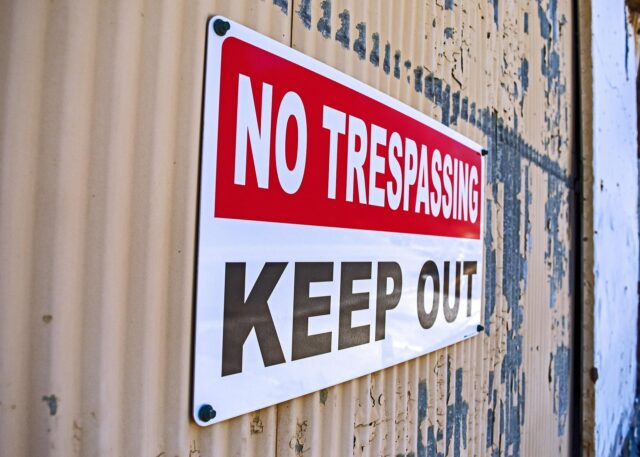
Car accidents occur every single day in New Jersey, and unfortunately, many of them are even fatal. In more cases than not, one party was obeying the rules and regulations of the road, while the other party who caused the accident was not. In these cases, the individual who was not responsible for the accident typically has a right to financial compensation, but car accident cases aren’t always straightforward. This is why it’s so important to retain the services of a knowledgeable Passaic County car accident lawyer who can help fight for full and fair compensation.
If you were injured in a car accident due to another party’s negligence, you can depend on the Law Offices of August R. Soltis to effectively represent your rights and interests. Our firm has over four decades of experience fighting for car accident victims in New Jersey, and we stand ready to put that experience to work for you. Contact us today to schedule your free initial consultation with our dedicated legal team.
Types of Car Accidents Handled by a Passaic County Car Accident Lawyer
Car accidents come in many forms, and each type presents unique risks and legal challenges. Some of the most common types of car accidents we handle include:
- Rear-End Collisions: Often caused by distracted or tailgating drivers, rear-end collisions can result in whiplash and other serious injuries.
- Head-On Collisions: One of the most dangerous types of accidents, head-on collisions often result in severe injuries or fatalities due to the force of impact.
- T-Bone Accidents: Also known as side-impact crashes, these accidents frequently occur at intersections and can lead to catastrophic injuries, especially for occupants on the side of impact.
- Multi-Vehicle Pileups: Accidents involving multiple vehicles are common on highways and can be complex when determining fault and liability.
- Hit-and-Run Accidents: When a driver flees the scene after causing an accident, victims may still be able to seek compensation through their uninsured motorist coverage.
- Rollover Accidents: These accidents, which are more common in SUVs and trucks, can result in severe injuries due to roof crushes and ejections.
- Sideswipe Accidents: These occur when two vehicles traveling in the same direction make contact, often due to improper lane changes.
Injuries Commonly Seen by a Passaic County Car Accident Lawyer
Car accidents can lead to a wide range of injuries, from minor to life-threatening. Some of the most common injuries sustained in car crashes include:
- Whiplash: A soft tissue injury caused by the sudden jerking motion of the head, often seen in rear-end collisions.
- Traumatic Brain Injuries (TBI): Concussions and other brain injuries can result from a violent impact.
- Spinal Cord Injuries: Damage to the spine can lead to partial or complete paralysis, affecting a person’s mobility and quality of life.
- Broken Bones: Fractures are common in high-impact crashes and may require surgery and extensive rehabilitation.
- Internal Injuries: Damage to internal organs, such as the liver, spleen, or lungs, can be life-threatening if not treated immediately.
- Lacerations and Scarring: Deep cuts from broken glass or metal debris can lead to permanent scarring or disfigurement.
- Burn Injuries: In severe accidents, fires or explosions can cause significant burns requiring skin grafts and long-term treatment.
- Knee and Joint Injuries: Impact injuries can lead to torn ligaments, dislocations, and long-term mobility issues.
- Psychological Trauma: Many accident victims suffer from PTSD, anxiety, or depression following a traumatic crash.
Steps a Passaic County Car Accident Lawyer Recommends After a Crash
Taking the right steps immediately after an accident can significantly impact your ability to recover compensation. Follow these crucial steps:
- Check for Injuries and Move to a Safe Location: Your safety is the top priority. Check yourself and others for injuries and call 911 for emergency medical assistance if needed. If possible, move your vehicle out of traffic to prevent further accidents. Turn on your hazard lights.
- Call the Police: Always report the accident to law enforcement. A police report serves as an official record and can be vital for your claim.
- Exchange Information: Gather contact, insurance, and vehicle information from all involved drivers. If there are witnesses, obtain their contact details as well.
- Document the Scene: Take photos and videos of the accident scene, vehicle damage, road conditions, and any visible injuries.
- Seek Medical Attention: Even if you don’t feel injured, see a doctor as soon as possible. Some injuries take time to manifest, and medical records will support your claim.
- Notify Your Insurance Company: Report the accident to your insurance provider but avoid making any detailed statements until you consult an attorney.
- Avoid Speaking to the Other Party’s Insurance Adjuster: The at-fault driver’s insurer may try to minimize your claim. Direct all communications to your lawyer.
- Keep Records: Maintain all medical bills, repair estimates, lost wage documentation, and any correspondence related to the accident.
- Consult a Car Accident Lawyer: An experienced Passaic County personal injury attorney can help you gather evidence and fight for the maximum compensation you deserve.
How a Passaic County Car Accident Lawyer Can Help With PIP in New Jersey
New Jersey follows a no-fault insurance system, meaning that after a car accident, your own insurance policy covers your medical expenses and certain other losses, regardless of who was at fault. This coverage is known as Personal Injury Protection (PIP) and is a crucial part of every auto insurance policy in the state. Here’s what PIP covers in New Jersey:
- Medical Expenses Coverage: PIP covers hospital bills, doctor visits, surgeries, rehabilitation, and other necessary medical treatments related to your accident injuries. The standard minimum coverage is $15,000 per person, but policyholders can select higher limits. In cases of severe injuries, such as brain or spinal cord trauma, PIP may cover up to $250,000 or more.
- Lost Wages: If your injuries prevent you from working, PIP may provide income continuation benefits, helping to cover a portion of your lost wages while you recover.
- Essential Services: If you’re unable to perform daily tasks, such as house cleaning or childcare, PIP may reimburse you for hiring assistance.
- Funeral Expenses: In the tragic event of a fatal accident, PIP may cover reasonable funeral and burial costs.
Importantly, while PIP covers medical expenses and related costs, it does not compensate for pain and suffering or other noneconomic damages. To pursue additional compensation, you may need to file a claim against the at-fault driver, depending on your insurance policy type.
Limited Right to Sue vs. Unlimited Right to Sue
New Jersey drivers must choose between two types of insurance policies, which impact their ability to file a lawsuit:
- Limited Right to Sue: This option lowers your insurance premiums but restricts your ability to sue for pain and suffering unless you suffer a serious injury, such as disfigurement, loss of a body part, significant scarring, or permanent disability.
- Unlimited Right to Sue: This option allows you to sue the at-fault driver for pain and suffering regardless of the severity of your injuries.
Damages a Passaic County Car Accident Lawyer Can Recover for You
If you’ve been injured in a car accident due to someone else’s negligence, you may be entitled to compensation for various damages, including:
- Medical Expenses: Coverage for hospital bills, surgeries, rehabilitation, and ongoing treatments related to your injuries.
- Lost Wages: Compensation for any income lost due to time off work while recovering from your injuries.
- Loss of Earning Capacity: If your injuries prevent you from returning to work or limit your ability to earn at the same level as before.
- Pain and Suffering: Compensation for the physical pain and emotional distress caused by the accident.
- Property Damage: Reimbursement for vehicle repairs or replacement if your car was totaled.
- Loss of Enjoyment of Life: Compensation for reduced quality of life due to lasting physical or mental impairments.
A car accident lawyer from our legal team will work to gather and present evidence to work toward the maximum compensation on your behalf.
Deadlines for Filing Car Accident Claims
New Jersey has a strict statute of limitations for filing car accident claims. In most cases, you have two years from the date of the accident to file a personal injury lawsuit against the at-fault party. If you fail to file within this time frame, you may lose your right to seek compensation. However, certain circumstances may affect this deadline, such as the following:
- Claims Against Government Entities: If your accident involved a government-owned vehicle, you must file a notice of claim within 90 days of the accident.
- Minors and Incapacitated Victims: If the injured party is a minor or legally incapacitated, the statute of limitations may be extended.
- Wrongful Death Claims: If the accident resulted in a fatality, the deceased’s family has two years from the date of death to file a wrongful death claim.
Though two years may seem like a lot of time, the truth is, the sooner you file your claim, the better. As time passes, memories fade, injuries heal, and the harder it will become to prove the damages you’ve sustained. A skilled Passaic County personal injury attorney from the Law Offices of August R. Soltis stands ready to effectively pursue the full and fair compensation to which you are entitled today.
Contact a Passaic County Car Accident Lawyer Today
Though it may be tempting to try and pursue compensation on your own, having a seasoned car accident lawyer in your corner can make a world of difference. Here at the Law Offices of August R. Soltis, we have fought for car accident victims in New Jersey for over 40 years, and we’re here to fight for you, too. Contact us today to schedule a free case evaluation with our knowledgeable legal team.
Our Latest Blogs
© 2026 Law Offices of August R. Soltis. All rights reserved. Attorney advertising.


